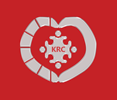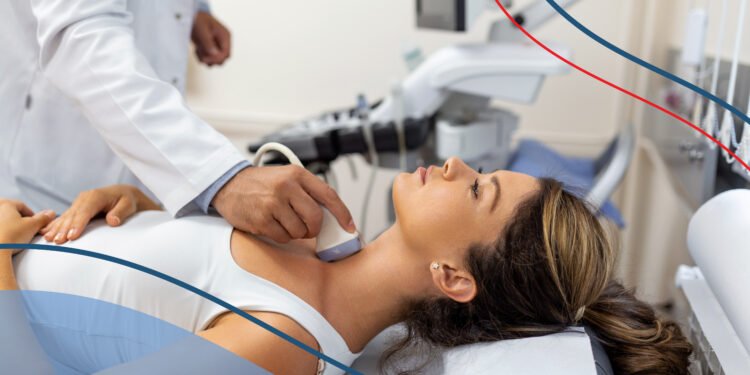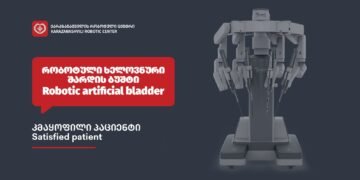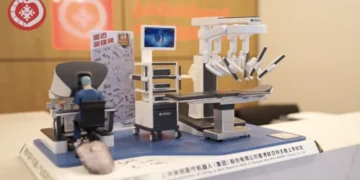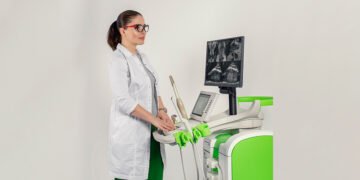Goiter is a structural change in the thyroid gland and is not always accompanied by a disruption in the gland’s function.
There are two types of hormonal changes in the thyroid gland. In one case, the thyroid becomes overactive — this is called toxic goiter. In the other case, the thyroid function is reduced, meaning the gland is unable to perform its normal duties. Medical professionals refer to this as hypothyroidism, or thyroid insufficiency.
Goiter can develop in a thyroid gland that is pathologically overactive, underactive, or functioning normally. When examining the thyroid gland, it is essential to assess both its structural condition (via ultrasound) and functional status (via hormone tests). A correct diagnosis is not possible without considering both sets of results together.
Risk Factors
Goiter can affect anyone, but it is more common in women and in people over the age of 40.
Risk factors include:
-
Gender – Women are more likely to develop thyroid issues and goiter.
-
Age – The risk of goiter increases with age.
-
Iodine deficiency – Low iodine intake in the diet is a major risk factor.
-
Pregnancy and menopause – For unclear reasons, thyroid problems become more likely during pregnancy and after menopause.
-
Medications – Certain drugs, such as lithium and immunosuppressants, increase the risk.
-
Radiation exposure – Radiation treatments to the neck or chest area, or general radiation exposure, also increase risk.
Once a goiter is detected, it is essential to determine the underlying cause, starting with an assessment of thyroid function through hormone testing.
Goiter Treatment Options
The main treatment methods for thyroid diseases such as goiter include:
-
Therapeutic (medication-based) treatment
-
Surgical intervention – This is recommended when:
-
The goiter is nodular
-
A nodule is larger than 1.5 cm (as larger nodules are less responsive to medication)
-
The goiter is diffusely enlarged
-
Thyrotoxicosis cannot be managed with medication
-
Kharazishvili Robotic Center offers both therapeutic and surgical treatments for thyroid goiter!
Contact us:
032 2 23 40 23
